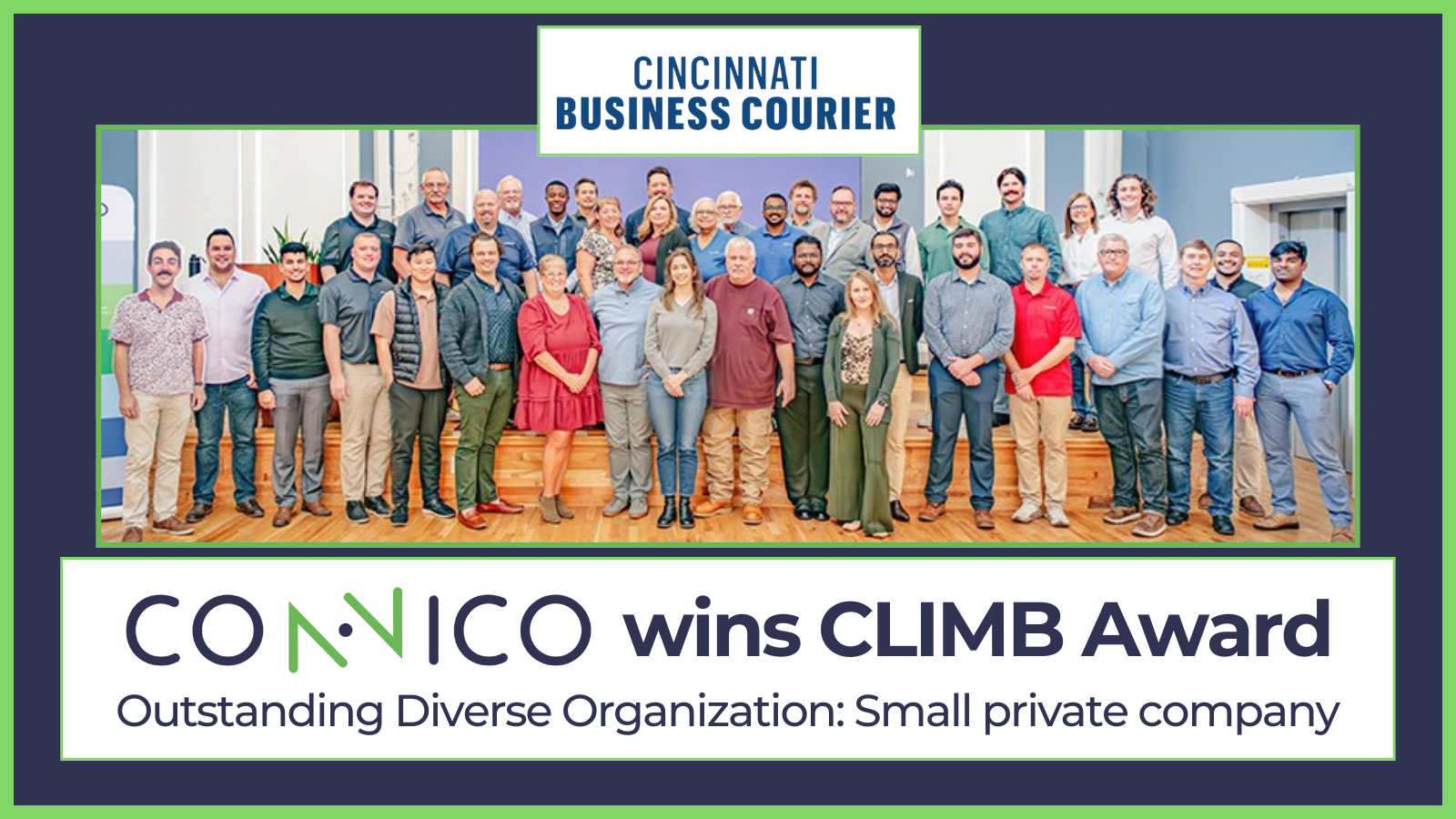Connico wins Cincinnati Business Courier CLIMB Award

Connico is honored to be recognized as a 2025 Cincinnati Business Courier CLIMB Award winner in the Outstanding Diverse Organization: Small Private Company category. The CLIMB Awards celebrate organizations and professionals across Greater Cincinnati that are meaningfully advancing inclusion in the workplace. This recognition reflects our ongoing commitment to fostering a culture where every voice is valued and every team member has the opportunity to grow. In the Q&A below, we share more about what this honor means to us, the initiatives that helped us earn this recognition, and how we continue building a workplace where everyone can thrive.
What's been your most significant win from the past year?
Ushering in a new wave of leadership. We've restructured our team to elevate diverse, emerging leaders while continuing to engage our experienced professionals as trusted subject matter experts. This balance allows us to honor Connico's 35-year legacy while bringing fresh perspectives that are shaping the next generation of industry leadership. This move also ensures that our culture of inclusion, innovation and excellence continues to grow well into the future.
What's been a major challenge and how have you overcome it?
Although Connico has nearly doubled in size with near-zero turnover in recent years, we're still considered a small firm in the industry, which means we're typically not the biggest name in the room. We have overcome that by doubling down on a culture of smart risk-taking, mentorship and honesty, proving ourselves on high-stakes work like the Cincinnati/Northern Kentucky International Airport runway expansion and earning clients' trust by consistently delivering beyond expectations. That reputation for doing the hard work and telling clients what they need to hear – not what they want to hear – is what continues to open doors for us.
What's a common misconception about your work toward diversity and inclusion?
That diversity and inclusion require a formal program. At Connico, equity is part of how we work every day – fair hiring, hands-on mentorship and clear pathways for advancement. With recent rollbacks to affirmative action and disadvantaged business enterprise programs already tilting the field, the challenge is hairier: When demand for skilled people is surging, lasting progress requires commitment, not committees, to widen the pipeline and bring more qualified talent into aviation and infrastructure.
Tell us about a mistake you've learned from or one you try to avoid.
Connico's team has always had a kind of camaraderie, but we lacked deliberate structures to advance people, promote diversity and nurture a company culture. We corrected course by hiring with retirement in mind, bringing on people who add to our culture from day one and investing in them with personalized training, mentorship, an employee-led innovation committee and industry-leading benefits and opportunities. That people-first approach has strengthened our diversity and supplier commitments: Our team represents more than 10 national and cultural backgrounds, and in 2023, we held 60% of meetings in spaces owned by disadvantaged-business enterprises (DBE), directed 54% of meeting expenses to DBE vendors and funneled 98% of recruitment spend to women- or minority-owned firms. The payoff has been exceptional retention (just three departures in five years), more competitive recruiting and a workforce prepared to tackle the toughest aviation and infrastructure challenges.
How would you rate our region's effort to boost minority inclusion?
I'd rate the region's work as promising, but it's still a work in progress. Cincinnati has been good to Connico for 34 years since we established an office here, and we see real effort across public and private sectors. However, sustaining the skilled workforce this industry needs will take more than goodwill. What's missing are durable pathways that turn interest into careers: protected opportunities for small and diverse firms, stronger pipelines from trade schools and community colleges and more on-ramps for people without traditional aviation backgrounds. With demand for technical talent rising and federal support shifting, those gaps matter more than ever.
This Q&A was originally published in the Cincinnati Business Courier.



